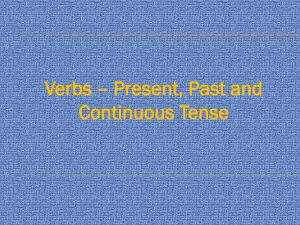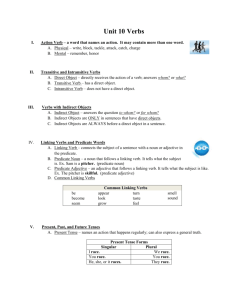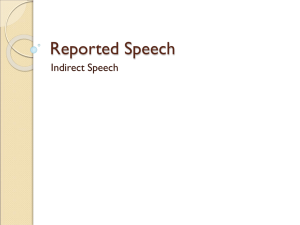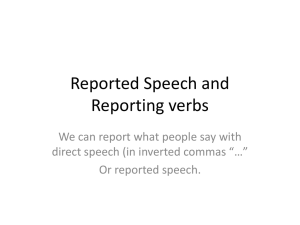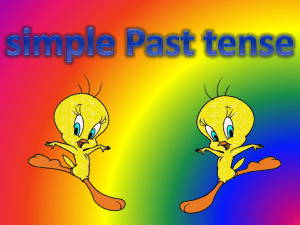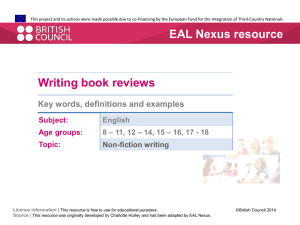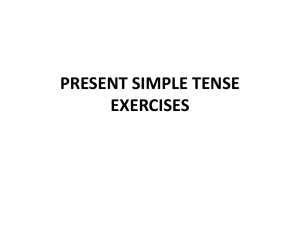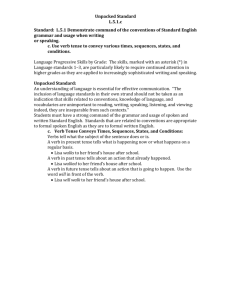DIRECT AND INDIRECT SPEECH Direct speech means the exact
advertisement
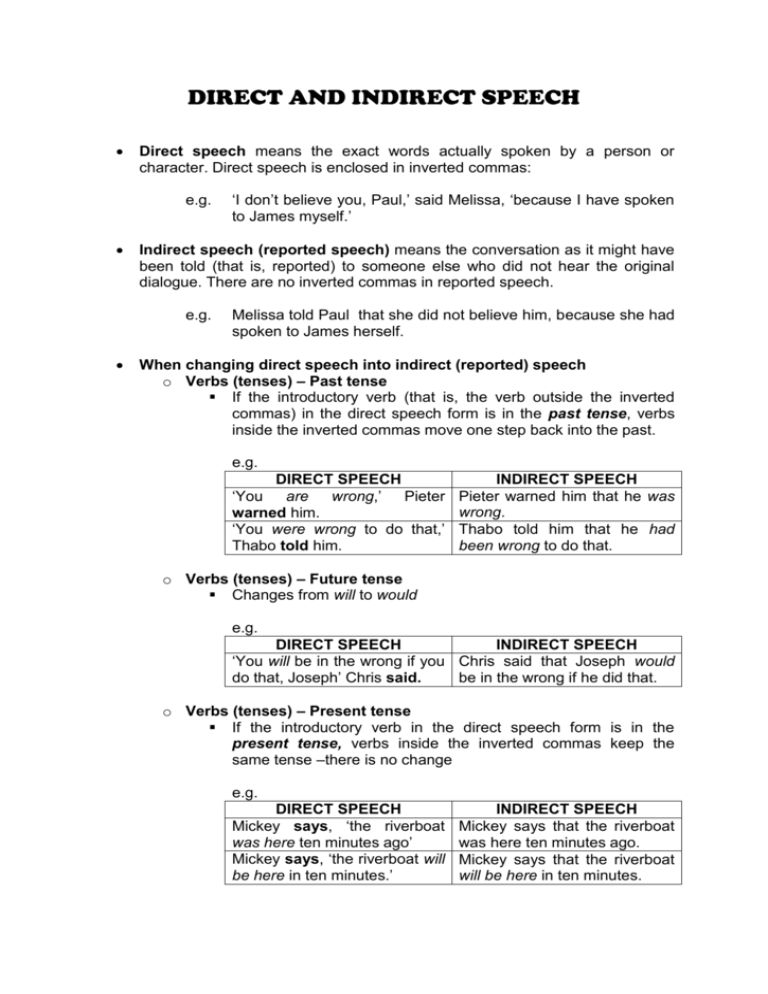
DIRECT AND INDIRECT SPEECH Direct speech means the exact words actually spoken by a person or character. Direct speech is enclosed in inverted commas: e.g. Indirect speech (reported speech) means the conversation as it might have been told (that is, reported) to someone else who did not hear the original dialogue. There are no inverted commas in reported speech. e.g. ‘I don’t believe you, Paul,’ said Melissa, ‘because I have spoken to James myself.’ Melissa told Paul that she did not believe him, because she had spoken to James herself. When changing direct speech into indirect (reported) speech o Verbs (tenses) – Past tense If the introductory verb (that is, the verb outside the inverted commas) in the direct speech form is in the past tense, verbs inside the inverted commas move one step back into the past. e.g. DIRECT SPEECH ‘You are wrong,’ Pieter warned him. ‘You were wrong to do that,’ Thabo told him. INDIRECT SPEECH Pieter warned him that he was wrong. Thabo told him that he had been wrong to do that. o Verbs (tenses) – Future tense Changes from will to would e.g. DIRECT SPEECH INDIRECT SPEECH ‘You will be in the wrong if you Chris said that Joseph would do that, Joseph’ Chris said. be in the wrong if he did that. o Verbs (tenses) – Present tense If the introductory verb in the direct speech form is in the present tense, verbs inside the inverted commas keep the same tense –there is no change e.g. DIRECT SPEECH Mickey says, ‘the riverboat was here ten minutes ago’ Mickey says, ‘the riverboat will be here in ten minutes.’ INDIRECT SPEECH Mickey says that the riverboat was here ten minutes ago. Mickey says that the riverboat will be here in ten minutes. o Adverbs of time and place (time words) – if verbs are in the future tense DIRECT SPEECH now today tomorrow yesterday here there INDIRECT SPEECH then that day or on that day the next day or the following day the day before or the previous day there or in this place in that place o Adverbs of time and place (time words) – if verbs are in the present tense. Stays the same o Pronouns and possessive adjectives Pronouns and possessive adjectives change no matter what the tense of the introductory verb is DIRECT SPEECH I you we us this these my your INDIRECT SPEECH he or she he, she, they or us they them that those his or her his, her, my or our Rewrite the following direct sentences into indirect (reported) speech. 1. 2. 3. 4. 5. 6. 7. 8. 9. 10. “I am going out”, he said. “You are an idiot!” he shouted. “They are arriving tomorrow,” said Sigamoney. “When is the rain going to stop?” she cried. “My father went to mosque today,” said Waheeb. “When my sister arrived here, she was very angry,” said Alice “How am I supposed to study when you are talking all the time?” asked Petrus. “Go outside and water the garden now,” commanded my mother. “If you don’t start studying now, you will definitely fail this year!” said my father angrily. “I don’t know where you will find him because he seems to have vanished,” said Miriam.
